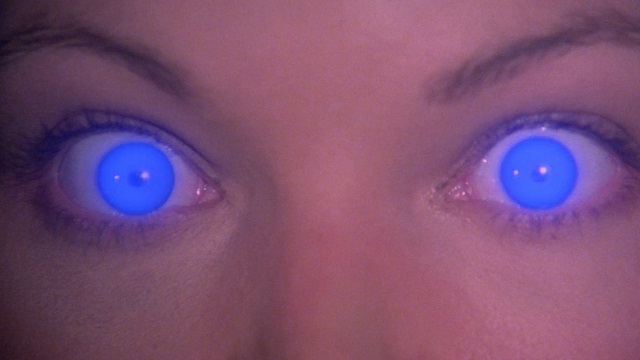Among the many successes of Brian De Palma, one of his first was making an Academy Award nominated horror film adaptation from the Stephen King’s first published novel. Carrie is arguably one of Stephen King’s greatest creations, and one of Brian De Palma’s greatest films. Between the two of them (and screenwriter Lawrence D Cohen), they created that rare horror movie that is equally parts terror, sympathy, empathy, and emotional devastation.
De Palma’s follow-up to Carrie is not a Stephen King adaptation, but it so presages King’s The Dead Zone (1979) and Firestarter (1980) that I had to double check that the source material actually existed. 1978’s The Fury opens with a very shirtless (and almost pantsless) 70-year-old Peter Sandza (Kirk Douglas) trying to retire from a mysterious government agency. Peter and his psychic son are going to move from the Middle East to Chicago so his son can train his mental facilities and use them for the government, but the mysterious government agency has different plans and kidnaps the son for nefarious purposes. The Fury is not really about them.
Two years later, Gillian Bellaver (Amy Irving) is a psychic girl in Chicago. She has a litany of strange abilities, from being able to read minds to making people bleed out of various orifaces. She’s being courted by the same mysterious agency that kidnapped Peter’s son. Meanwhile, Peter is trying to find out what happened to his son and has plans to use Gillian for his nefarious purposes.
Much like so many of Stephen King’s books (that this is not an adaptation of), The Fury has severe pacing issues, bad parallel storytelling, a road trip with exhausted exceptional people on the lam, and secretive government behaviors. Like Firestarter, there’s a girl with psychic powers wanted by the government for testing and training, and she is being sought after by a father figure. Like The Dead Zone, there’s a bit of mysterious psychic detective work that tries to prevent a government conspiracy.
Even if you get bored by the overlong car chase sequences or the street shootouts and bus rides, you must hang on. Just like Stephen King’s early works, The Fury has the most over-the-top electric finale you could ever want from this story. De Palma’s finale goes right up until the credits roll, and there’s absolutely no other way this movie should have ended.


